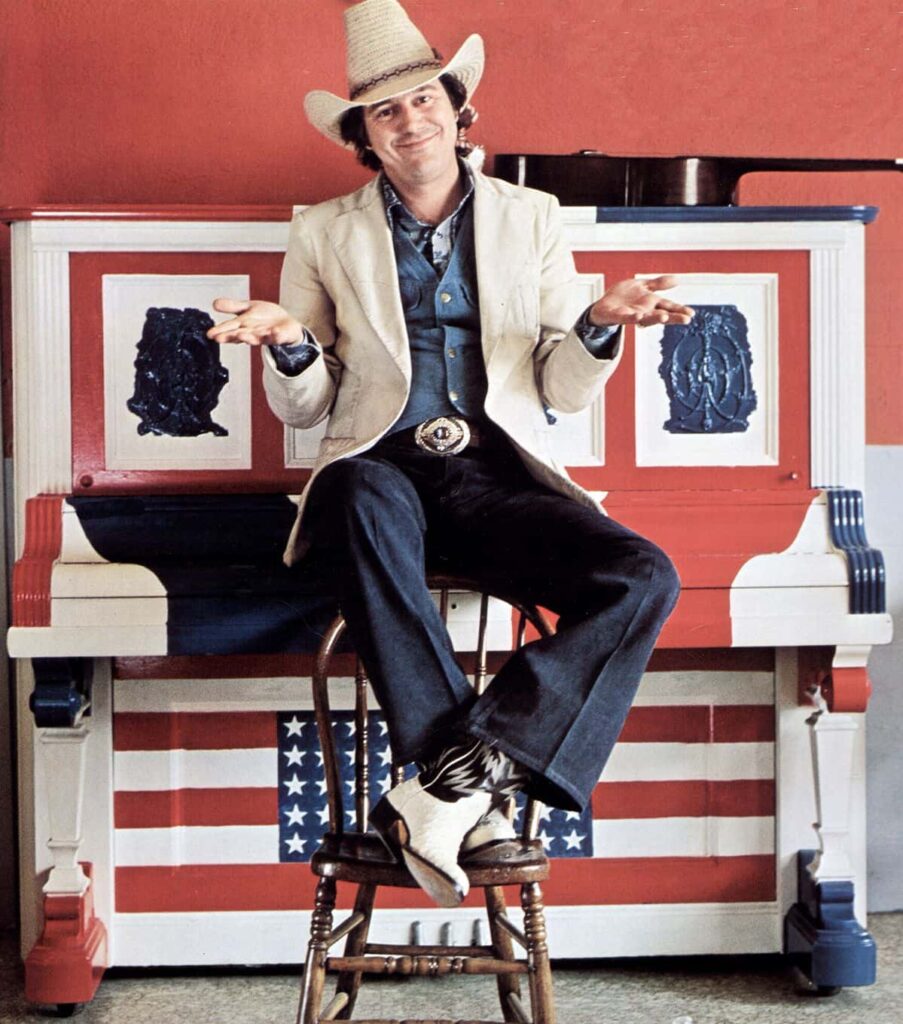
A Wistful Waltz: The Outlaw Ballad of a Lost Soul’s Last Dance
There are songs that simply entertain, and then there are the rare, shimmering few that feel like a whispered secret, a glimpse into a life half-lived—and “Mr. Bojangles” is surely one of the latter. Penned and originally recorded by the ultimate ‘gonzo’ troubadour, Jerry Jeff Walker, this masterpiece arrived in the heady, turbulent year of 1968 on his album of the same name. While Walker’s version gained traction, it was the definitive cover by The Nitty Gritty Dirt Band in 1970 that catapulted the song to true mainstream success, peaking at No. 9 on the Billboard Hot 100 in 1971 and reaching No. 2 in Canada. Walker’s original 1968 single, however, quietly found its way onto the charts, reaching No. 77 on the U.S. Billboard Hot 100. Its lasting impact, though, is measured not in chart positions but in the countless hearts it has touched, proving that the most profound songs are often the ones that honor the forgotten.
The emotional core of “Mr. Bojangles” lies in its absolutely genuine backstory. The genesis of the song goes back to 1965, when Jerry Jeff Walker was briefly locked up in a New Orleans jail for public intoxication. Inside the cell, he encountered an old, homeless man—a white street performer who, to keep his true identity from the police, called himself “Mr. Bojangles,” a name that historically paid homage to the great African American tap dancer Bill “Bojangles” Robinson. The man in the cell was a weary but resilient soul, sharing stories of his life, his travels with a beloved dog that had tragically died twenty years earlier, and his continued grief. When the general mood in the jailhouse turned somber, a fellow inmate cried out for something to lighten the mood. The old man, the original “Mr. Bojangles,” obliged, getting up in his ragged attire to perform a halting, moving soft-shoe tap dance. Walker, a master chronicler of life’s rough edges, never forgot that poignant moment of resilience and sorrow, later distilling the entire encounter into a haunting 6/8 waltz—a perfect blend of a jaunty dance rhythm and a profound, underlying sadness.
This song is a deep reflection on the dignity of the down-and-out, a compassionate look at the wandering spirits who live outside society’s rigid boundaries. It’s an ode to the freedom and the sorrow of the itinerant life, where true wealth is found in memories and a worn pair of tap shoes. For us older listeners, the song evokes the open roads and the counter-cultural spirit of the late sixties and early seventies, reminding us of the characters we met along the way who, though perhaps destitute, carried a quiet depth of soul.
Over the decades, “Mr. Bojangles” became a standard, a musical yardstick adopted by everyone from Sammy Davis Jr., who turned it into a jazzy, personal testament, to Nina Simone, who gave it a deeply soulful read. Yet, for many purists, it is Jerry Jeff Walker’s slightly raw, authentic folk-country delivery that remains the most affecting. It carries the dust of the road and the damp air of the New Orleans jail cell, a living, breathing testament to the genius of the outlaw country movement, which often chose to elevate the tales of society’s marginalized over commercial gloss. It’s a song that settles in the heart and refuses to leave, forever reminding us that even the most faded memories can be grounds for the most beautiful art.